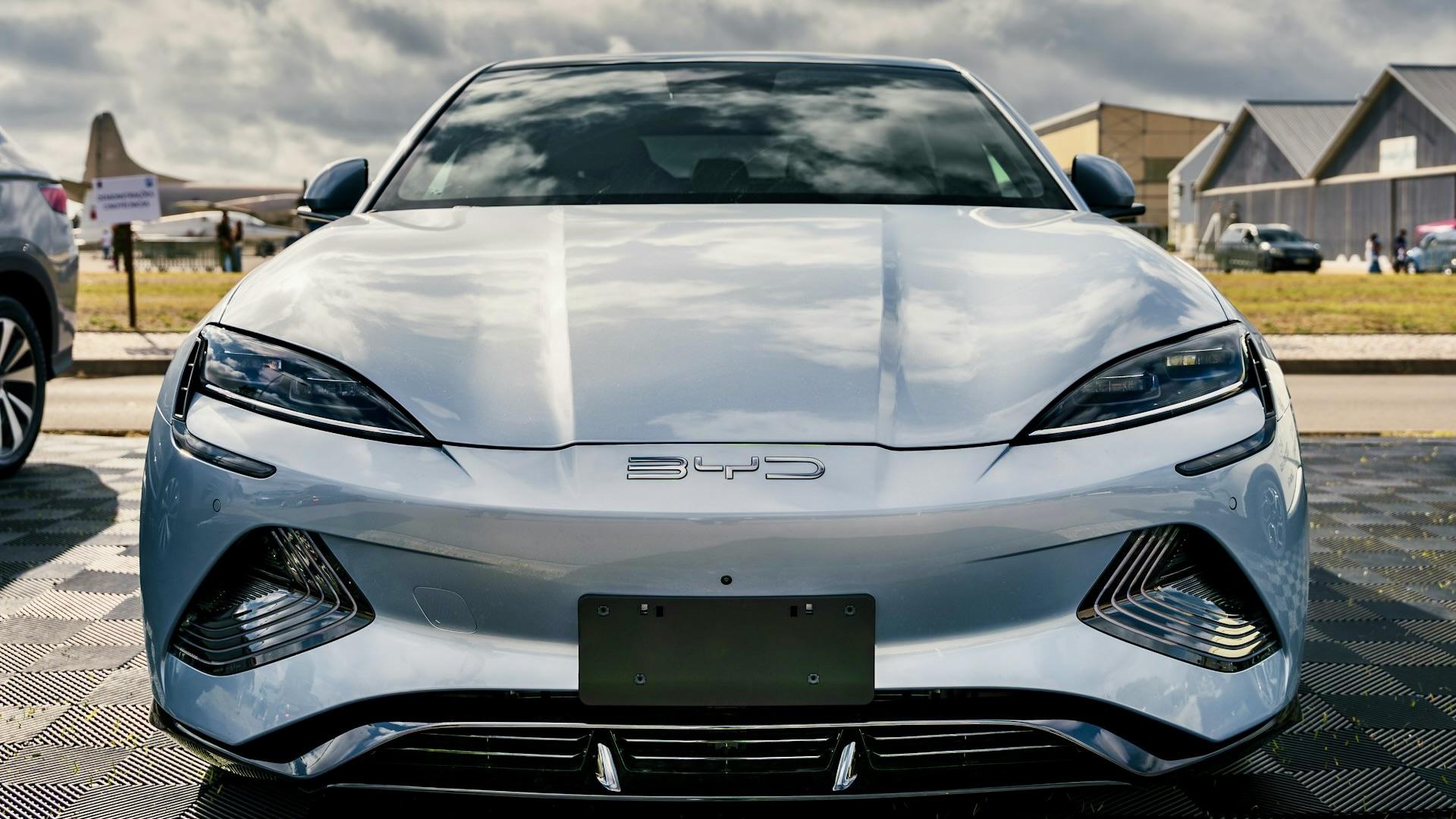BYD is gearing up to introduce its Atto 3 and Seal electric vehicles in South Korea by early 2025, signaling the Chinese automaker’s entry into the passenger car market. The launch aims to capture South Korea’s rapidly expanding EV market alongside major competitors like Tesla and Hyundai.
BYD Eyes South Korean Market to Compete with Tesla
South Korea is a new market where BYD will compete with Tesla. The South Korean passenger car market is set to welcome the Chinese automaker next year, according to The Korea Economic Daily.
Korean sales affiliate BYD Korea "completed review to release passenger car brands in the domestic market" on November 13, Wednesday. Commercial vehicles like buses, forklifts, and trucks were introduced to the South Korean market by BYD in 2016. Beginning in the first quarter of 2025, BYD Korea will begin selling passenger cars in South Korea.
“To meet the high expectations of Korean consumers, we conducted in-depth evaluations with experienced employees and partners."
According to Cho In-chul, the head of BYD Korea's passenger car division, the company is making great efforts to build a reputation that can win over Korean consumers by utilizing its innovative technology and track record of success on a worldwide scale.
BYD Prepares Extensive Infrastructure for Market Entry
In preparation for entering the South Korean passenger car market, BYD Korean is actively hiring and setting up regional sales and service. It has to train employees, complete marketing strategies, and get car certifications, among other things.
Teslarati points out that BYD and Tesla have been involved in several high-profile battles in recent years. Full electric and plug-in hybrid vehicles are just two of the many new energy vehicles offered by BYD.
Chinese Brands Face Challenges in South Korea’s Market
South Korean passenger car sales have been slow for Chinese companies, according to local media. Concerns about quality and safety have made it difficult for Chinese new energy vehicle makers to gain popularity in South Korea.
On the other hand, Giga Shanghai's Teslas have been selling well in South Korea, which could have increased Chinese EV imports.
In the first seven months of 2024, according to data from the Korea International Trade Association (KITA), Chinese EV imports reached $848 million. South Korea imported 66% of all electric vehicles manufactured in China. This was mostly due to the reasonably priced Tesla Model Y and Model 3, which made up the majority of the Chinese market.
BYD’s Models Target Tesla and Hyundai Competitors
The Atto 3 and Seal, two electric vehicles from BYD, are set to make their debut in South Korea. The Atto 3 has previously been certified environmentally by the Ministry of Environment in South Korea. Certification from the BYD Seal has not yet been received by the company.
In South Korea, the BYD Seal will likely face stiff competition from the likes of the Hyundai IONIQ 6 and Tesla Model 3.
“We have thoroughly examined (the Korean passenger car market) with employees and partners with diverse experiences to meet the high expectations of Korean consumers."
“We will strive to become a trusted brand among Korean consumers with our successful global expansion strategy and outstanding technology,” Cho stated.



 Coupang Reports Q4 Loss After Data Breach, Revenue Misses Estimates
Coupang Reports Q4 Loss After Data Breach, Revenue Misses Estimates  xAI’s Grok Secures Pentagon Deal for Classified Military AI Systems Amid Anthropic Dispute
xAI’s Grok Secures Pentagon Deal for Classified Military AI Systems Amid Anthropic Dispute  BlueScope Steel Shares Drop After Rejecting Revised A$15 Billion Takeover Bid
BlueScope Steel Shares Drop After Rejecting Revised A$15 Billion Takeover Bid  Trump Orders Federal Agencies to Halt Use of Anthropic AI Technology
Trump Orders Federal Agencies to Halt Use of Anthropic AI Technology  Trump Warns Iran as Gulf Conflict Disrupts Oil Markets and Global Trade
Trump Warns Iran as Gulf Conflict Disrupts Oil Markets and Global Trade  Panama Investigates CK Hutchison’s Port Unit After Court Voids Canal Contracts
Panama Investigates CK Hutchison’s Port Unit After Court Voids Canal Contracts  DeepSeek AI Model Trained on Nvidia Blackwell Chip Sparks U.S. Export Control Concerns
DeepSeek AI Model Trained on Nvidia Blackwell Chip Sparks U.S. Export Control Concerns  Meta Signs Multi-Billion Dollar AI Chip Deal With Google to Power Next-Gen AI Models
Meta Signs Multi-Billion Dollar AI Chip Deal With Google to Power Next-Gen AI Models  Microsoft Gaming Leadership Overhaul: Phil Spencer Retires, Asha Sharma Named New Xbox CEO
Microsoft Gaming Leadership Overhaul: Phil Spencer Retires, Asha Sharma Named New Xbox CEO  APEX Tech Acquisition Inc. Raises $111.97 Million in NYSE IPO Under Ticker TRADU
APEX Tech Acquisition Inc. Raises $111.97 Million in NYSE IPO Under Ticker TRADU  OpenAI Targets $600B Compute Spend as IPO Valuation Could Reach $1 Trillion
OpenAI Targets $600B Compute Spend as IPO Valuation Could Reach $1 Trillion  Nvidia Earnings Preview: AI Chip Demand, Data Center Growth and Blackwell Shipments in Focus
Nvidia Earnings Preview: AI Chip Demand, Data Center Growth and Blackwell Shipments in Focus  Netflix Stock Jumps 14% After Exiting Warner Bros Deal as Paramount Seals $110 Billion Acquisition
Netflix Stock Jumps 14% After Exiting Warner Bros Deal as Paramount Seals $110 Billion Acquisition  Nintendo Share Sale: MUFG and Bank of Kyoto to Sell Stakes in Strategic Unwinding
Nintendo Share Sale: MUFG and Bank of Kyoto to Sell Stakes in Strategic Unwinding  OpenAI Hires Former Meta and Apple AI Leader Ruomin Pang Amid Intensifying AI Talent War
OpenAI Hires Former Meta and Apple AI Leader Ruomin Pang Amid Intensifying AI Talent War  Hyundai Motor Group to Invest $6.26 Billion in AI Data Center, Robotics and Renewable Energy Projects in South Korea
Hyundai Motor Group to Invest $6.26 Billion in AI Data Center, Robotics and Renewable Energy Projects in South Korea  Snowflake Forecasts Strong Fiscal 2027 Revenue Growth as Enterprise AI Demand Surges
Snowflake Forecasts Strong Fiscal 2027 Revenue Growth as Enterprise AI Demand Surges 































